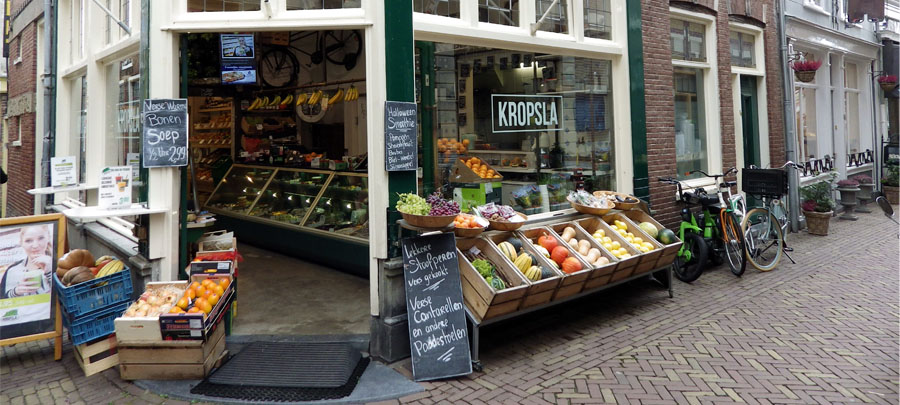Despite not being one of the larger European nations, with a population of 17.8 million inhabitants, the Netherlands is a top player in the world economy. It is ranked the 18th largest economy in the world and it has a strong import ecosystem, especially in the food sector. The Dutch market serves as a hub for both consumption and redistribution of imported goods, which creates a strong network of Dutch food importers with a lot of experience.
The Leading Agro-products in High Demand in the Netherlands
The Netherlands imports a wide range of agricultural products, with some leading categories dominating the market. Fruits and nuts rank at the top with an import value of $8.2 billion. Imports come mainly from South Africa, Peru, and Spain.
The Dutch nation is also the European Union’s largest importer of palm oil and cocoa.
In 2023 palm oil imports were valued at $1.52 billion, while cocoa imports reached $1.368 billion. Palm oil is imported from Malaysia, Guatemala, Papua New Guinea, Indonesia and Honduras, while cocoa comes from Cote d’Ivoire, Cameroon, Ghana, Nigeria, Guinea, Ecuador.
Other significant imports based on the 2023 statistics include meat ($5.75 billion), dairy products ($6.15 billion), fish and seafood ($3.1 billion), and vegetables ($3.57 billion).
The majority of these products are reexported to other European countries, with the Netherlands acting as a trading hub.
The Netherlands Imports and Exports to Create a Solid Trade Balance
The trade balance created by the Netherlands economy is one interesting thing about the country’s trade pattern.
The Dutch nation happens to be the only place in northern Europe that has a favorable trade balance in vegetables and fruits for example. In 2023, the north European country imported about $3.5 billion value of produce and later exported about $9 billion in value of similar goods. As active players they don’t just import for consumption but make good returns in re-exports to other nearby European neighbors. Over 20% of fruits and vegetables exports to Europe have been carried out by the Netherlands.
The status of Holland as a trading hub can be clarified by its infrastructure, logistical benefits, and close cooperation between manufacturers and service suppliers in the raw fruit sector. The primary destinations of the Dutch production and re-export are still nations in northern Europe, and Germany is by far the biggest. For these nations, the Netherlands is among the main providers of imported tropical fruit and fresh vegetables. Common fruit, like bananas, appears to be shipped straight to the intended destination, but Dutch traders give a good infrastructure in northern Europe to suppliers of more rare varieties.
Food Import trends for 2024 and beyond
- Packaged and processed foods are on the rise. With a boost from the pandemic, the consumption of meals that are easy to prepare at home continues to increase in the Netherlands as well. Urban consumers with fast-paced lives prefer options like ready-to-eat meals and snacks, but the twist in this region, like in other wealthier EU countries, is that there is a preference for high-end varieties. Consumers are looking for healthier and also more sustainable packaged food options.
- Growing Appetite for Unique Culinary Offerings. The Netherlands has experienced a notable rise in consumer interest for exotic and high-end food products. This trend encompasses a wide range of imported goods, including exotic fruits, artisanal coffee, specialty teas, and gourmet spices. These products are particularly popular among the hospitality industry and consumers seeking diverse and sophisticated culinary experiences.
- Plant-based, functional foods. The Dutch food industry is poised for transformative growth, driven by emerging trends that reflect evolving consumer values. Plant-based products, functional nutrition, and transparent sourcing are becoming increasingly prominent, reflecting a sophisticated market that prioritizes both personal wellness and environmental responsibility. These innovations are not merely passing fads but represent a fundamental shift in food consumption, bridging consumer expectations with rigorous regulatory standards and sustainability goals.
Getting into the Dutch Market
Let’s start with the hard truth – The Netherlands do not suffer from a shortage of suppliers. Due to their efficiency and in the forefront as a logistic trading hub for Europe, the country is supplied by a wide range of nations. South Africa, Chile, and Peru are the largest providers outside Europe, joined by Costa Rica, which primarily exports pineapples and bananas to the country. Importers prefer supplies from neighboring nations, if available.
Dutch importers are also interested in supplies from new locations especially of origins that fit well in the seasonal gaps. For instance, mangoes from western Africa are a big interest because of their closeness to Europe. Avocados from Colombia are another owing to their season which fills the supply gap.
It is not as hard to find prospective buyers in the country but in nations where economic ties are well established, it becomes harder for new exporters to get in.
Because discovering the right company can be a challenge, BestFoodImporters offers a number of databases that include details about close to hundreds of active food importers from the Netherlands.
3 Food Importers from the Netherlands
- Tovano
Address: 47 Transportweg
Maasdijk, Zuid-Holland, 2676 LM
Phone: +31 174 528 333
Website: https://www.tovano.nl/ - Sawari Fresh International
Address: 22 Transportweg
Barendrecht, Zuid-Holland, 2991 LV
Phone: +31 180 472 803
Website: https://sawarifresh.com/ - Broodservice
Address: 23 Watervoort, Amsterdam, Noord-Holland, 1046 BG
Phone: +31 20 334 4599
Website: https://broodservice.nl/
To get access to a list of more active food importers from Brazil, you can access one of the BestFoodImporters databases.
